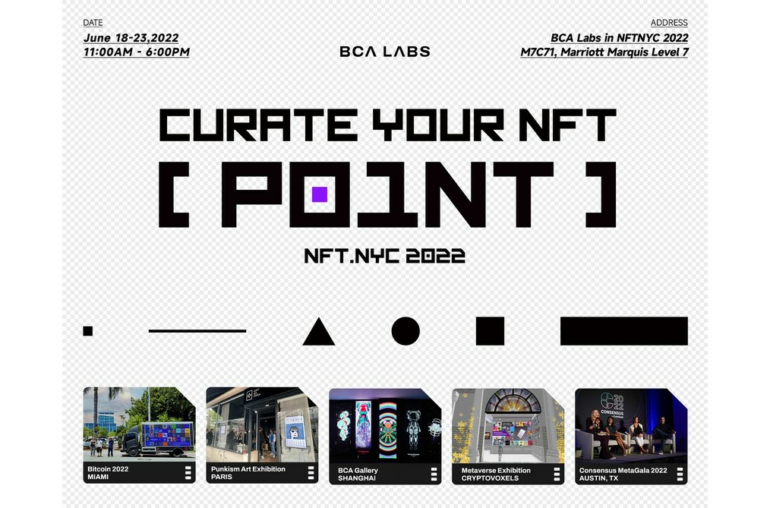Home » Guides » Crypto 101
Non-fungible tokens, or NFTs, are digital assets that can be bought and sold on online marketplaces for profit – and many people have already made money trading them! But before you jump into it, there are some important things to know about NFT trading, especially how to make a profit doing it.
NFT trading is simply the buying and selling of NFTs. It is similar to other forms of trading, such as stocks or currency, but with the added advantage of using blockchain technology to ensure that the NFTs remain secure and immutable. Unlike traditional stocks or currencies, NFTs cannot be duplicated and they have unique properties that make them attractive to buyers. Some of the most popular NFT marketplaces are:
1. OpenSea
2. Rarible
3. SuperRare
4. Nifty Gateway
5. NBA Top Shot Marketplace
6. Foundation
Making a profit from NFT trading is not as straightforward as it may seem. It involves being able to identify the right times to buy and sell, along with having an understanding of the trends that are driving up or down the prices of certain NFTs. To make the most profits, traders need to be aware of all the factors that can affect NFT prices. This includes news related to the project, updates in the space, changes in laws and regulations, as well as market sentiment.
Tips for successful NFT trading
1. Do your research: It is important to thoroughly research any potential investments you make. Make sure you are informed about the specific projects behind a given NFT, the technology, and any upcoming events or releases that may affect its price.
2. Look at the trends on Google: Google Trends is a fantastic free tool for exploring how the general population views a certain item. Searches may be rated from 0 (very poor) to 100 (very good). High ratings indicate that NFT collectibles are popular. And what is popular will most likely make you a good profit.
3. Buy NFTs at Floor Price: The NFT market has floor prices, which are the lowest pricing for a certain kind of non-fungible token. If the token gains traction in the future, buying the floor will put you in a strong trading position to profit immensely.
4. Don’t FOMO: While it can be tempting to jump into the buying frenzy when an NFT begins to rise in price, this is often a recipe for disaster. It is important to exercise patience and discipline when trading NFTs and not get carried away with the crowd.
1. Was Trading: One of the risks associated with dealing with NFTs is wash trading. This is when an NFT originator or seller artificially inflates the price of their NFT using many fictitious accounts to sell and purchase it at ever-increasing rates.
2. Network Congestion: Due to the popularity of NFTs, some networks such as Ethereum can experience network congestion which can affect the speed and cost of transactions – be aware that this could influence your ability to buy or sell assets quickly or profitably.
3. Founders rug pulling the community: A rug pull occurs when an NFT developer advertises a new project that supposedly includes future additions in order to attract investors, only to shut down the project and run off with the funds once the first element has been sold.
4. Impersonation: Some con artists would pose as legitimate artists in order to sell fraudulent artworks under their names.
5. Lack of Utility: The vast majority of NFT projects do not provide any real utility, which means that after acquiring them, purchasers cannot further leverage their NFT holdings.
NFT trading can be a lucrative endeavor if done correctly. By following the tips discussed in this article and keeping an eye on market trends, you will be able to maximize your profits while minimizing risk. However, it is important to remember that NFTs are highly volatile investments and there is no guarantee of success or profit – so always do your due diligence before investing.
Disclaimer. The information provided is not trading advice. Cryptopolitan.com holds no liability for any investments made based on the information provided on this page. We strongly recommend independent research and/or consultation with a qualified professional before making any investment decisions.
NFT trading involves the buying and selling of non-fungible tokens (NFTs) on digital marketplaces. When trading NFTs, buyers can purchase individual tokens with cryptocurrencies or other payment methods, then hold them in their wallet as an investment. The investor can later sell these tokenized assets on the same marketplace for a profit.
The value of NFTs is determined by a variety of factors, including scarcity, utility, and demand. NFTs all have different characteristics that set them apart. This means that no two NFTs are exactly alike, making them highly sought-after by collectors and investors alike.
Before starting to trade NFTs, there are some important things to consider. Always do your research. Also, it’s important to understand the economics of NFTs, including how to analyze the market and identify trends. Another way is to diversify your portfolio and manage risk responsibly.
The top NFT marketplaces are OpenSea, Rarible, SuperRare, and Foundation.
News
Company
Policies
Signup for our newsletter to stay in the loop.


